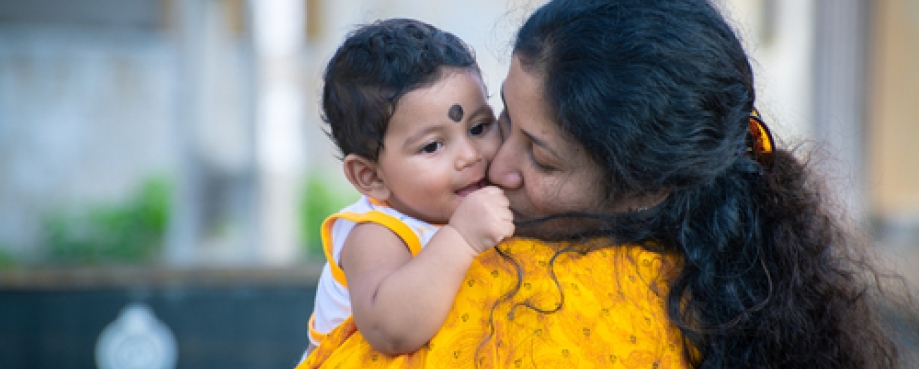
The Mother and Child Friendly Seal for Responsible Business is an initiative aimed at encouraging family friendly supply chains.
The Initiative was launched in Colombo, Sri Lanka on 15 June 2022, and is the work of The Centre for Child Rights and Business, with support from Save the Children and key tea industry stakeholders.
Launching the initiative amidst Sri Lanka’s worst ever economic crisis was no coincidence. For brands operating in or sourcing from Sri Lanka, it has never been more important to step up and support their workforce. Not only to support workers’ during the crisis, but also to protect their own business continuity. For it is only through retaining staff and maintaining production and services, that businesses can remain afloat and positively impact the country’s economy.
This initiative has evolved incrementally over the last eight years. Born out of serendipity, it was first conceptualised by a group seated at the same gala table in 2014. The group, then comprised the heads of Save the Children Sri Lanka, Sri Lanka Tea Board and Planters Association of Ceylon, had the idea that a certification scheme, originating from the Sri Lanka tea sector, might better communicate the steps Ceylon tea businesses and stakeholders were making to improve the lives of workers and their families. This certification would hold recipient businesses to their commitments and create a value addition for Ceylon tea in the global tea market. The tea sector generates incomes for tens of thousands of families in Sri Lanka and contributes to 3% of GDP.
In 2017, Save the Children Sri Lanka first started work on a pilot initiative called the Mother and Child Friendly Plantations programme, with funding from Save the Children Hong Kong. The pilot was implemented over the next five years in partnership with eight estate companies and the Ministry of Women and Child Affairs, resulting in several key interventions; including the development of child protection policy for companies to adopt, home-based early childhood education training for parents, and community based nutritional promotional approaches.
The pilot demonstrated positive results and impacts within the communities of participating tea estate companies. Children at risk were proactively identified, supported and referred to the relevant government department for further support. Voices of children were included in community-based child protection mechanisms. Fathers’ engagement in their children’s early learning increased, where previously they were not involved. And community support groups working closely with public health midwives in villages demonstrated that there was improvement in maternal health and nutritional intake of children, and family involvement in that behavioural change.
With the learnings from these pilots, Save the Children started exploring ways of sustaining and improving good practice and the initial certification idea was revisited. By the same token, Save the Children Sri Lanka signed a strategic partnership agreement with The Centre for Child Rights and Business (The Centre), a social enterprise that works with businesses globally to identify and mitigate risks to children, by taking forward learnings and recommendations from studies, consultations, and pilots, to develop and manage their commitments under the certification.
The Centre opened their Sri Lanka office in 2022 where they developed the framework, guidance, and tools for the Seal initiative, through close consultation with Save the Children and key tea sector stakeholders. An advisory committee focused on providing strategic guidance for the Seal initiative was formed with representation from the Planters Association of Ceylon, Plantation Human Development Trust, Ministry of Women and Child Affairs, Employers Federation, Save the Children, and the Sri Lanka Tea Board participating as an observer. The committee is expected to further expand with the start of the implementation of the initiative.
The Mother and Child Friendly Seal initiative for Responsible Business supports business entities in undertaking a capacity self-assessment to better understand where they are currently at in terms of addressing potential risks to children in their own business operations as well as that of their supply chain. It also supports businesses to make meaningful investments that will strengthen and address prioritised areas, collaborate with other stakeholders such as development agencies, civil society organisations and government institutions to promote and protect women and children’s rights and demonstrate the Sri Lankan tea industry’s progress in its transformation as a family-friendly tea supply chain.
On 15 June 2022, seven companies – Horana Plantations PLC, Elpitiya Plantations PLC, English Tea Shop, Talawakelle Tea Estates, Kelani Valley Plantations PLC, Bogawantalawa Tea Estates and Eswaran Brothers Exports – signed up for the Mother and Child Friendly Seal for Responsible Business and will start their capacity self-assessments in the coming month.
The Seal Initiative has begun with the tea sector for the estate companies, exporters and brands, but has plans to expand to smallholder societies and other business sectors, including the garment and tourism sectors, in the coming years.
For more info on the Seal Initiative and to discuss how companies can get involved, please visit https://www.srilanka-motherandchildseal.org or contact ahila.thillainathan@childrights-business.org
